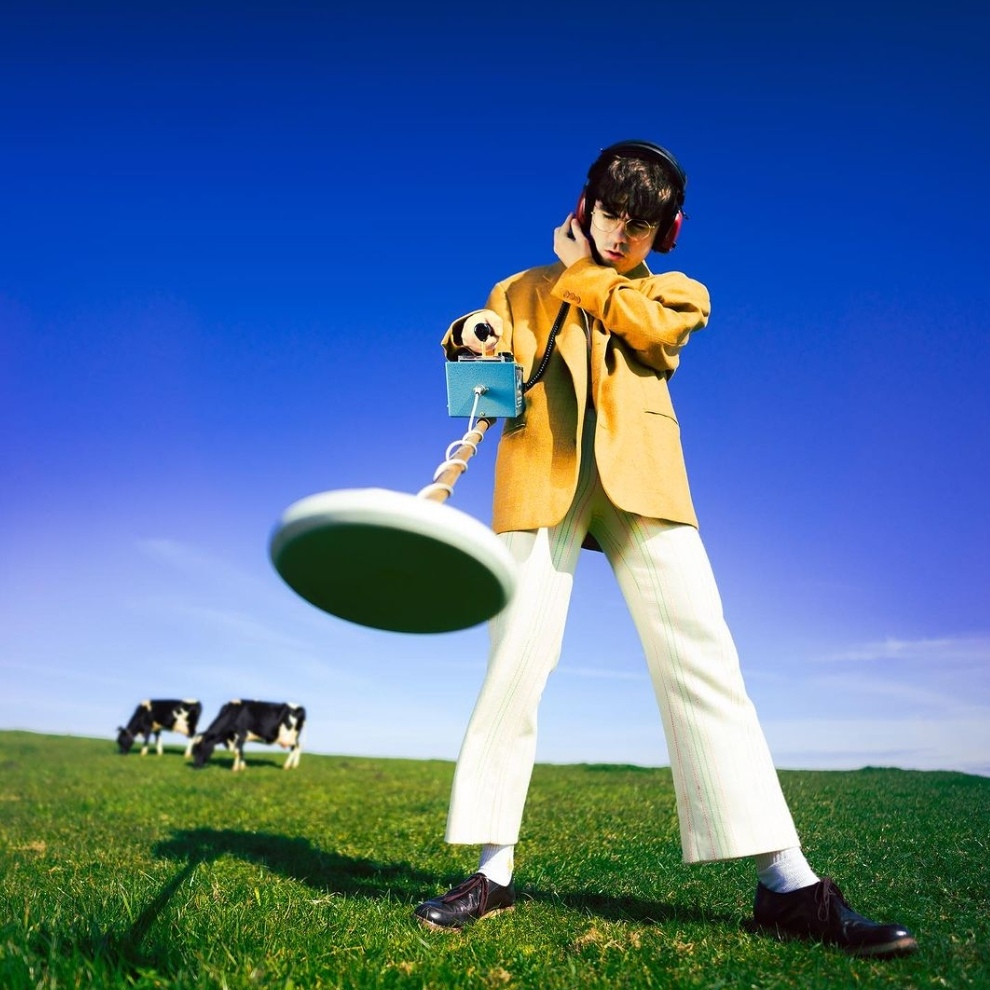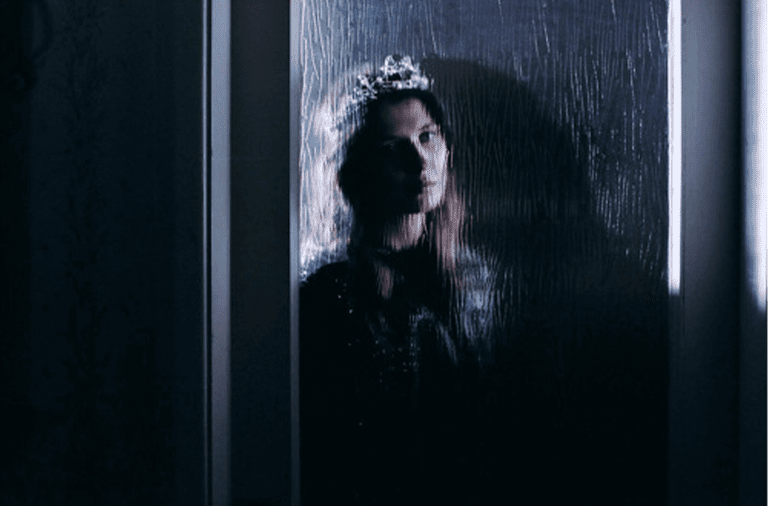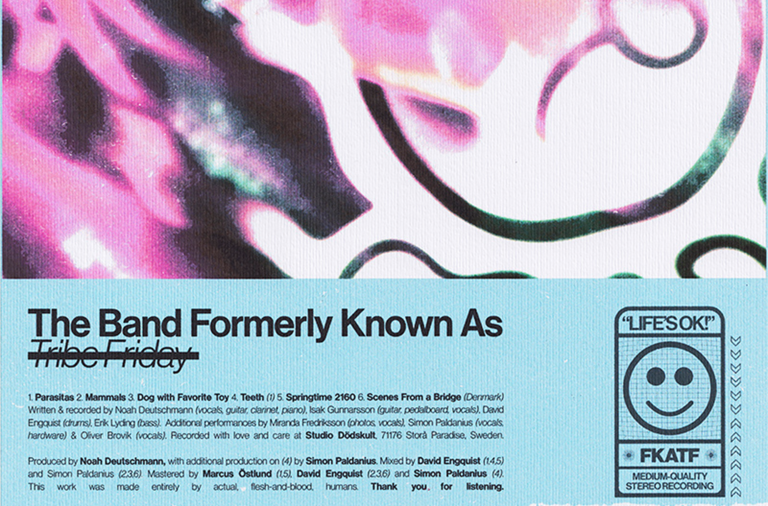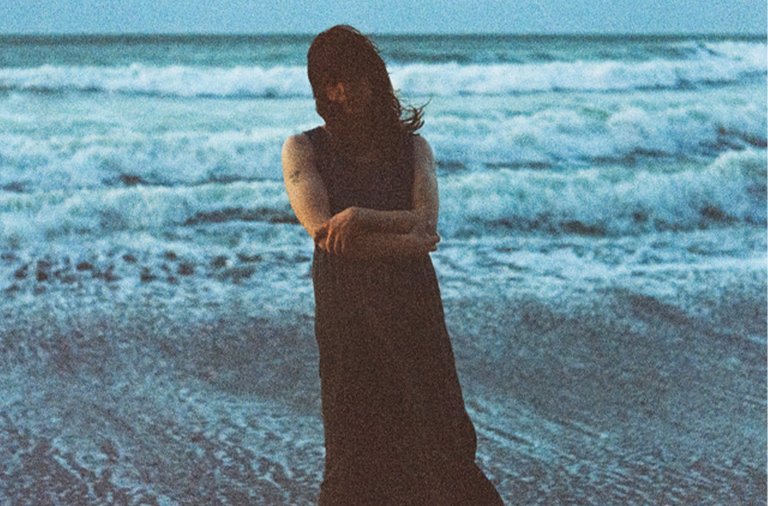At the age of just 25, Declan McKenna has already released his third studio album What Happened To The Beach? The album is a follow-up to ‘Zeros’, which peaked at #2 on the Scottish and British charts. McKenna became known in 2015 after winning the Glastonbury Festival’s Emerging Talent Competition. His first single, ‘Brazil’, also earned him recognition in the U.S., which must be a dream for the English singer-songwriter.

McKenna became known with ‘Brazil’, a protest song criticising FIFA’s decision to host the World Cup in Brazil. As this song gave him an incredible start to his career, McKenna felt like protest songs were his trademark. It took him three albums to realise there’s a whole different world out there as well. With What Happened to The Beach?, McKenna wants to have a bit more fun with the process, instead of putting a lot of pressure on himself and feeling like he is soapboxing.
When McKenna said he wanted this album to be something different, he didn’t mess around. You can let go of everything you think you already know about him and his art. Just as on his previous two albums, the singer combines the old 70s feel with modern instruments and synthesisers, but the distinction lies in his choice of other musical influences and creates a completely new world.
The biggest question that this album raises, obviously, is what happened to the beach? Even though it’s the name of the album, there isn’t a song included bearing that title. This however seems to be a red line in McKenna’s work as the album ‘What do you think about the car?’ also didn’t have a song with that name, but had the album title as opening lyrics. For ‘What Happened To The Beach?’, ‘WOBBLE’ is the song that gets the honour to open the album with this lyric. In this track, you can immediately hear the different directions that McKenna chose for his music. Even though the wobbly vocals in the first part are something you either love or hate, the song has a catchy melody that sticks with you. In the last part, McKenna pleasantly switches to his normal and very clear vocals, which welcome you into the rest of the album.
‘Elevator Hum’ was already released as a single leading up to the album. With this song, you can recognize the playfulness McKenna wanted to create in making this album. The song has a nostalgic feeling and does its name justice with the calmness and backing vocals. Whereas this song is very in line with ‘WOBBLE’’, with the next songs you can mostly hear the influence of The Beatles. Both ‘I Write The News’ and ‘Sympathy’ wouldn’t have looked out of place on a 70s album. The chorus of ‘I Write The News’ with the backing vocals and echoes is a typical rich Beatles sound. McKenna also shows off his guitar skills with nice, catchy riffs throughout the song. ‘Sympathy’ follows the 70s path, but with a grander opening. It reminds me of ‘Love is All’ by Roger Glover and Ronnie Dio. The song was the first single of the album and is the most bubbly and positive song on the album.
After two very Beatlesque songs, we get back into McKenna’s world with ‘Mulholland’s Dinner and Wine’ and ‘Breath Of Light’. Both songs are more surreal and dreamy. ‘Mulholland’s Dinner and Wine’ is a combination of places and storylines. Throughout the song, it doesn’t become clear whether it’s about a party, criminals or loneliness. With ‘Breath of Light’ it’s even harder to figure out what it’s exactly about. The song is more of an experience than a song.
With this album, McKenna decided to try something different from what his fans are used to. However, ‘Nothing Works’ comes closest to his old style. And maybe that’s also the whole point of this song. McKenna wants to change his style and try something new. However, during that process, several people raised questions about whether it was a good idea. The lyrics are an exclamation of frustration and feeling stuck, but the euphoric tune makes it a celebration of being your true self.
The next part of the album is a mix of styles. ‘The Phantom Buzz (Kick In)’ is a David Bowie, Arctic Monkeys-influenced song, whereas ‘Honest Test’ is the complete opposite. Both songs, however, showcase McKenna’s talent on the guitar. The first song is more of a rock song, whereas the latter has a calm and soothing riff. ‘Mezzanine’ follows the calmness of ‘Honest Test’, but lyrically and title-wise also fits very well with ‘Elevator Hum’.
The last two songs on the album take you to a different world with a lot of emotions. By trying not to make a protest album or soapboxing, it’s also harder to find the ‘real’ Declan McKenna and his opinions in this album. ‘It’s an Act’ makes up for that. It’s the most personal and sad song McKenna has written so far. You can hear the emotions flowing through his voice. Lyrically, it captures the same vulnerability as ‘Nothing Works’, but because it’s slow and direct, it breaks down a fourth wall. The outro emphasises the emotions in the song. The emotions flow through in ‘4 More Years’. Recording the song, McKenna immediately knew this would be the outro. In the last seconds, you can hear him say “This could be a cool end”. The song sounds like a gospel choir, with the song title as the only lyrics. It’s like a question to god to at least give him 4 more years of making music.
With this album, McKenna chose a new direction for his music. I have to admit that it took me multiple plays before getting used to the essence of the ‘new’ McKenna, but that for sure doesn’t make it a bad album. Only time will tell if Declan decides to stay in this lane of music. But if McKenna keeps putting out music like this, I’m sure he’ll have at least 4 more years.
Written by: Kelly Zwiers
Edited by: Ilse Muis



